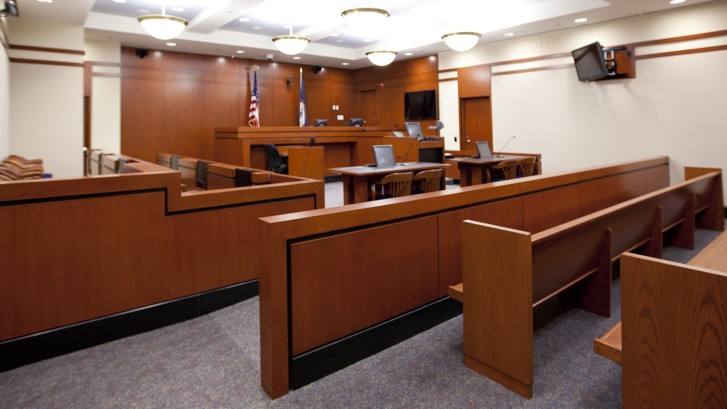Understanding the Probate Process
Introduction to Probate
Probate is the legal process for managing the distribution of a deceased person’s estate. It ensures that debts are paid and assets are distributed according to the decedent’s wishes or state laws. It’s a process that emphasizes transparency and fairness, requiring meticulous documentation and court oversight. The complexity of probate varies with the size and complexity of the estate, as well as the specific laws of the jurisdiction. Probate attorneys are pivotal in navigating these complexities, offering clarity and ensuring compliance at every step.
The Role of a Probate Attorney
Probate attorneys, or estate law attorneys, are specialized legal practitioners. They advise and represent the interests of an estate during the probate process. Their involvement can dramatically simplify legal proceedings. They ensure that the executor’s decisions are sound, lawful, and in the best interest of the estate. These legal experts also play a crucial role in minimizing the emotional and administrative burden on the executor. They provide peace of mind during a challenging time. They serve as both advisors and advocates, a dual role that is essential for the smooth execution of probate duties.
Key Responsibilities of a Probate Attorney
Legal Guidance and Representation
Asset Inventory and Valuation
A thorough inventory and accurate valuation of the decedent’s assets are foundational to the equitable distribution of an estate. Probate attorneys lend their expertise in identifying not just obvious assets but also those that may be overlooked. This includes digital assets or intellectual property. Their involvement ensures that the estate is valued fairly and accurately. This is a crucial step for both tax purposes and equitable asset distribution.
Debt Settlement and Tax Filings
Distribution of Assets
The culmination of the probate process is the distribution of the estate’s assets to the rightful beneficiaries. This stage can be fraught with emotional and legal challenges, especially in the absence of a clear will. Probate attorneys play a critical role in executing this phase with fairness and legal rigor. They ensure that the distribution aligns with the decedent’s wishes or statutory guidelines. Their involvement is key in preventing disputes and ensuring a smooth transfer of assets.
Benefits of Hiring a Probate Attorney
Expertise in Estate Law
The intricate web of estate law requires not just a broad understanding of legal principles but also an in-depth knowledge of state-specific laws and procedures. Probate attorneys bring this expertise, simplifying complex legal jargon and processes for the executor and beneficiaries. Their guidance is pivotal in avoiding common pitfalls that could delay the probate process or result in financial losses for the estate.
Conflict Resolution
Disagreements among beneficiaries are not uncommon in estate administration. The objective perspective and legal expertise of a probate attorney can be critical in mediating these disputes. They often find amicable solutions that avoid costly litigation. Their role in facilitating negotiations and compromises is invaluable in maintaining family harmony and preserving the estate’s value.
Time and Stress Reduction
The administrative and legal responsibilities involved in managing an estate can be overwhelming for an executor, especially during a time of grief. Probate attorneys alleviate this burden by handling the bulk of legal tasks. This allows executors to focus on personal matters. This support is invaluable in reducing stress and saving time. It ensures that the probate process moves forward smoothly and efficiently.
The Interplay of Probate Law with Other Legal Disciplines
Integration with Business and Corporate Law
Real Estate and Property Concerns
Estate Planning and Trust Management
The probate process is closely linked to estate planning, particularly in managing trusts and executing estate plans. Probate attorneys play a key role in interpreting and implementing the decedent’s estate plan. They ensure that trusts are managed in accordance with the decedent’s wishes. This includes special needs trusts, which require careful handling to preserve beneficiaries’ eligibility for government benefits.
New Considerations in Probate Law
Digital Assets and Estate Administration
The digital age has introduced a new class of assets to estate planning and administration. Probate attorneys increasingly manage digital assets, from social media accounts to cryptocurrency. This requires a modern understanding of digital asset management. They ensure these assets are inventoried, valued, and distributed according to the decedent’s wishes.
The Role of Probate in Asset Protection
International Aspects of Estate Administration
Final Thoughts
The role of a probate attorney in estate administration is multifaceted and indispensable. They navigate legal complexities, manage business interests and real estate assets, and honor the decedent’s wishes. Their expertise not only simplifies the probate process but also provides invaluable support in times of need. They are essential partners in estate administration. As estates become more complex and diverse, the role of the probate attorney will only continue to evolve. It reflects the changing landscape of estate law and asset management.




